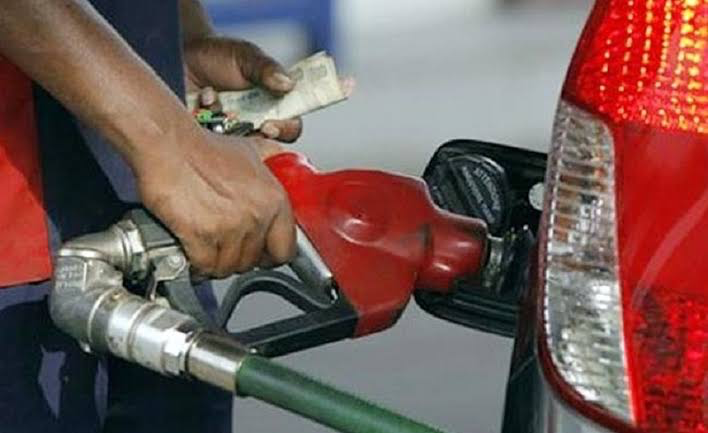KEY POINTS
- Fuel importers in Nigeria are now selling petrol below Dangote refinery’s prices, creating a competitive pricing standoff.
- Dangote has called for a government-imposed fuel importation ban, citing toxic fuel dumping and unfair trade practices.
- Marketers support liberalisation, argue that competition benefits consumers, and warn against policy moves that would restrict imports.
Petrol importers in Nigeria have significantly slashed prices below the rates offered by the Dangote Petroleum Refinery, setting off a fierce price battle that is reshaping the dynamics of the country’s downstream oil market.
This development comes on the heels of Dangote Group President Alhaji Aliko Dangote’s repeated calls for the federal government to ban the importation of fuel to protect local refineries.
As of Tuesday, several filling stations in Lagos and Ogun States were selling petrol below ₦860 per litre, undercutting Dangote refinery’s retail partners, including MRS and Heyden, which sold petrol at ₦865 to ₦875. One station in Ogun, named SGR, was offering petrol at ₦847 per litre.
Industry sources confirmed that importers are now offering petrol at ex-depot prices as low as ₦815 per litre. This is below Dangote’s refinery price of ₦820 and also cheaper than the Nigerian National Petroleum Company Limited’s (NNPC) rate of ₦825.
According to the petroleum price tracking platform, Petroleumprice.ng, companies such as Aiteo and Menj had pegged their rates at ₦815 per litre on Tuesday, creating a competitive pressure that the Dangote Group says undermines local production.
Speaking to journalists, the National Publicity Secretary of the Independent Petroleum Marketers Association of Nigeria (IPMAN), Chinedu Ukadike, acknowledged the trend of falling depot prices. “Depot owners are dropping their petrol prices. Some of them are selling at ₦815, some at ₦817, while Dangote is selling at ₦820. NNPC is still at ₦825; it has not dropped its prices yet,” he explained.
Ukadike supported continued liberalisation of the petroleum market and dismissed Dangote’s suggestion of a fuel importation ban. “This is the beauty of the liberalisation of the market. That is why we opined that the President should not ban anybody from importing petroleum products. Nobody should be stopped from bringing in petroleum products. That is the beauty of opening up the market,” he said.
He emphasized that Nigeria must continue refining its own products, but that competition would ultimately protect consumers and encourage better pricing. “As an indigenous country, you must refine to ensure that you have the best price,” he added.
Dangote raises alarm over toxic fuel, unfair competition
Aliko Dangote, whose Lagos-based refinery boasts a capacity of 650,000 barrels per day, is sounding the alarm over what he described as a surge in the importation of toxic and heavily subsidised fuels into Nigeria. At a recent event organized by the Nigerian Upstream Petroleum Regulatory Commission (NUPRC) in Abuja, Dangote accused some fuel importers of engaging in harmful dumping practices.
“And to make matters worse, we are now facing increased dumping of cheap, often toxic petroleum products, some of which are blended to substandard levels that would never be allowed in Europe or North America,” Dangote warned.
He further alleged that petroleum products sourced from Russia—where fuel is capped in price due to sanctions—are being re-routed to African markets, including Nigeria, and sold at prices that make it nearly impossible for local producers to compete.
“Due to the price caps on the Russian petroleum products, discounted petroleum products produced in Russia or with discounted Russian crude find their way to Africa, severely undercutting our local production, which is based on full crude pricing,” he said.
According to him, this has created “an unlevel playing field in most African countries,” adding that local prices in Nigeria are now “about 60 cents per litre, even cheaper than Saudi Arabia, which produces and refines its own oil.”
Dangote called for the Federal Government to extend the “Nigeria First” policy, previously announced by President Bola Tinubu, to the oil and gas sector. “The Nigeria First policy announced by His Excellency, President Bola Tinubu, should apply to the petroleum product sector and all other sectors,” he declared.
Marketers warn against import ban, cite benefits of open market
Despite Dangote’s call for protectionist policies, many marketers insist that a ban on fuel importation would harm consumers and reduce competitive pricing. They argued that the current scenario, where multiple sources of fuel exist, helps stabilize prices and ensures availability.
Ukadike dismissed Dangote’s claims of toxic fuel flooding the market, pointing out that the Nigerian Midstream and Downstream Petroleum Regulatory Authority (NMDPRA) is tasked with maintaining quality control. “The regulator is there to check substandard fuels,” he stated.
Some stakeholders believe that Dangote’s refinery, which was expected to reduce Nigeria’s dependence on imported fuels, may now be struggling to break even in a market that is aggressively competitive and volatile due to global price fluctuations.
The price battle also raises broader concerns about the future of local refining in Nigeria. If left unresolved, the tensions between importers and local refiners could deter future investments and strain relationships between private operators and the federal government.
While the Dangote refinery was seen as a potential game-changer for Nigeria’s fuel security, its ability to compete in a deregulated market now hinges on policies that balance both local and global supply realities.



